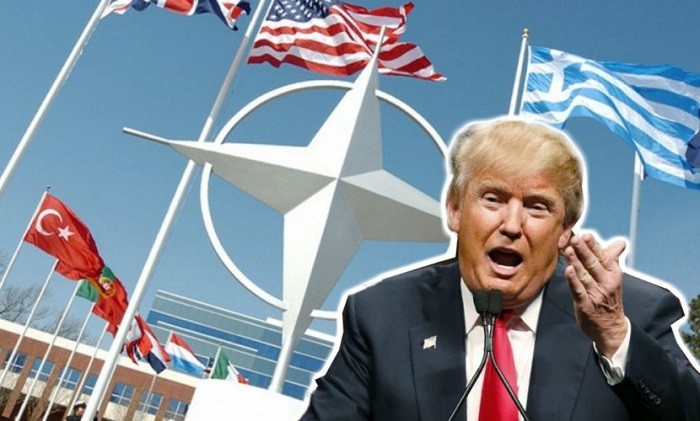Russian commentator Lilia Shevtsova argues that Moscow is about to be offered a way out of isolation but on the West’s terms rather than its own, an argument that if true would suggest some dramatic changes in both Moscow and Western capital but one that might should it happen be far less sustainable than she imagines.

In a widely reposted Facebook note, the analyst says that “the fist and gingerbread” are “from now on going to be the principles of Western policy in relation to Russia,” with NATO strengthening its positions in Eastern Europe and Germany talking about easing sanctions.
According to Shevtsova, German Chancellor Angela Merkel is behind this shift, one that reflects the need “to preserve the unity of the West (and above all the EU)…, [fears] that Russia in isolation will become still more aggressive,” and concerns that sanctions are hurting the economies of certain European countries.
Initially, she suggests, the EU will end its blocking of visits by members of the Russian elite to the West “in exchange for Moscow’s real cooperation in conducting elections in the DNR and LNR according to Western conditions.” And the West via NATO will work to strengthen the security “of those countries which do not agree with an easing of sanctions on Russia.”
In a word, Shevtsova says, “Moscow will be offered the chance of staged exit from isolation. But on Western conditions. And this will hardly mean a return to the former ‘normalcy.’” And that in turn means that Russian should expect that the ball will be in their court.
Shevtsova is one of the most thoughtful analysts of Russian-Western interaction, and her words must be taken seriously as an indication of what some in the West and others in Moscow may be hoping for. But there are three reasons to be concerned about how sustainable such a new “normalcy” would be.
First, if indeed this plan goes forward, both some in the West and some in Moscow will view it not as an endpoint but as a stage and will press for more, thereby creating a situation that Moscow can better exploit because it has shown itself quite prepared to wait while those in the West hurry to propose yet more new things, including some kind of grand bargain.
The shape of that has already been suggested in Moscow: The Russians will at least for a time stop their meddling in Ukraine if the West will acknowledge that Crimea is once and for all part of Russia and off the table of any future talks. And they will seek confidence-building measures including a drawback of forces that some in the West will find hard to resist.
Maintaining an enhanced troop presence in Eastern Europe, including the Baltic countries, will be increasingly difficult for Western governments under such an arrangement because Moscow will never give up its ability to influence publics in Western countries with charm offensives and the like.
Second, if this plan happens, what does it mean that Russia would support elections in the occupied Donbas according to Western rules? Presumably it means that Moscow won’t torpedo them, but any such elections as long as the Russian-Ukrainian border is not closed and Ukrainian sovereignty restored will reflect Russian interests whatever procedures are followed.
And third, such an arrangement will mean from Vladimir Putin’s perspective that he isn’t really being punished at all for his aggression given that he clearly doesn’t care what happens to his own population and is insulated from popular anger by the police state he has created and that he can engage in some further adventures with confidence that the same will be true again.
It is here that what Shevtsova reports is both most disturbing and most frightening: If Europe allows officials now on watch lists to visit European countries, the West will have given up much of its leverage with the Russian elite whose members will have even less reason to break with Putin than they did before.
Related:
- The Kremlin, sanctions, June 8, 2016: What will the French Senate do?
- New sanctions possible if Russia keeps violating Ukrainian hostages' rights | #LetMyPeopleGo
- Sanctions should be the EU's response to the "suspension" of the Mejlis
- Kyiv must counter Moscow disinformation about sanctions impact on Europeans, Inozemtsev says
- Putin regime has long had an ideology -- Great Power Imperialism -- Pavlova says
- Putin invaded Ukraine to deflect Russian nationalist threat to himself, Demushkin says
- Savchenko's release signals Putin's fall to Earth
- Putin accelerating his plan for long-term confrontation with the West, Illarionov says





